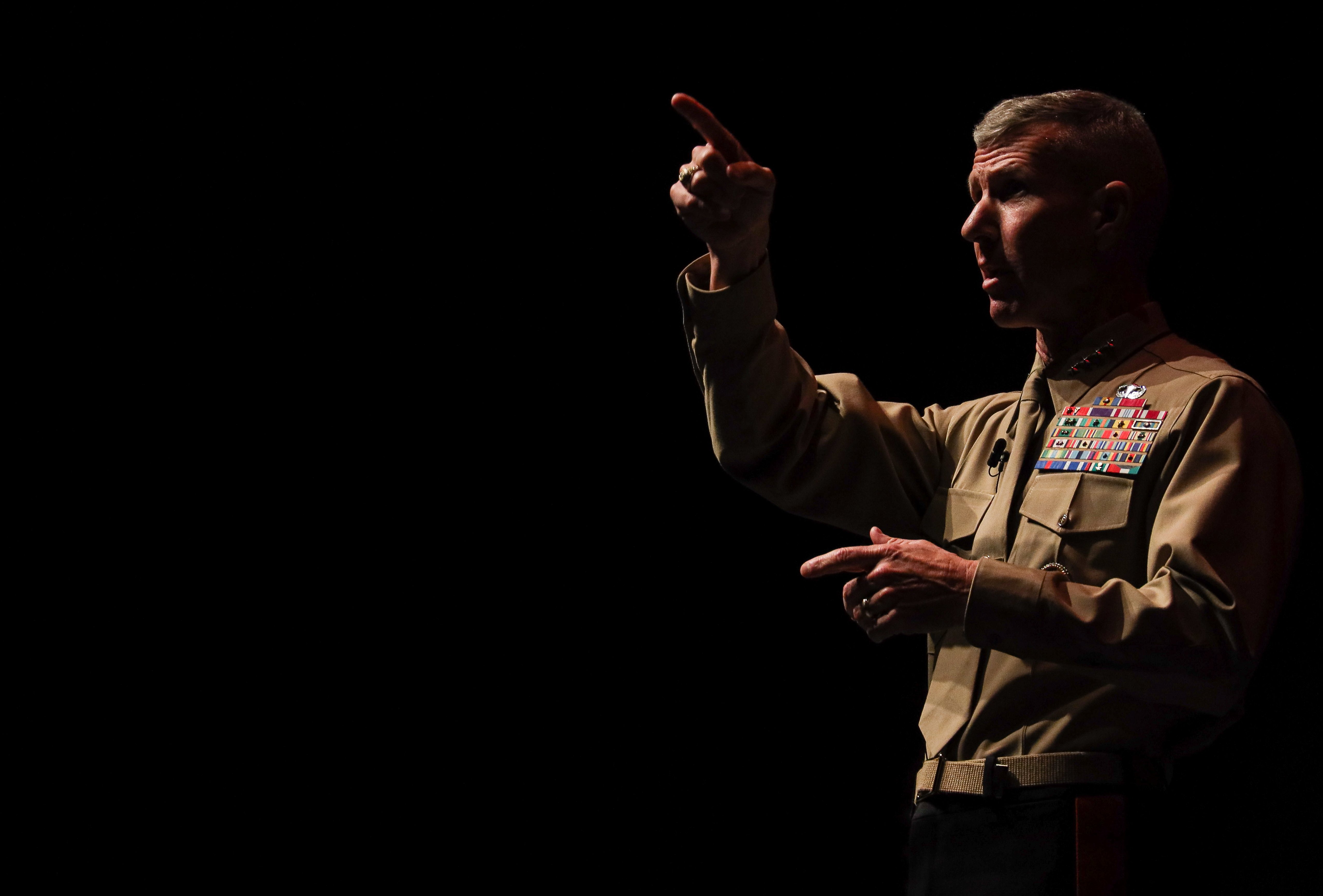
If confirmed, Smith would succeed Gen. David Berger as the Marine Corps’ top officer. Berger is expected to retire this summer.
Prior to becoming the assistant commandant in 2021, Smith led Marine Corps Combat Development Command and was the deputy commandant for combat development and integration, where he oversaw the Marine Corps’ effort to overhaul the force to make it lighter and more mobile for a potential conflict with China in the Indo-Pacific. Known as Force Design 2030, the modernization push has been at the forefront of Berger’s time as commandant and an initiative Smith spearheaded as the Marine Corps’ top requirements officer.
During his time as the deputy commandant for combat development and integration, Smith worked closely with Vice Adm. Jim Kilby, the deputy chief of naval operations for warfighting requirements and capabilities (OPNAV N9) at the time, on creating more seamless integration between the two services.
“Naval integration and where we are going as a force, it’s based on the threat. The pacing threat,” Smith said in 2020 at an event with Kilby.
“If anyone questions why we are doing this, Jim and I are reading, along with the other deputy CNOs, deputy commandants, reading the daily intelligence that requires you to move in this direction. It is clear as the nose on your face.”
Prior to serving as the deputy commandant for combat development and integration, Smith was the commanding general of the Okinawa, Japan-based III Marine Expeditionary Force. His also previously led U.S. Marine Corps Forces Southern Command.
A career infantryman, Smith is a graduate of Texas A&M University, according to his service biography.
“He has commanded at every level, including Weapons Company, 2nd Battalion, 2nd Marine Regiment during Operation Assured Response in Monrovia, Liberia; 1st Battalion, 5th Marine Regiment during Operation Iraqi Freedom; and 8th Marine Regiment/ Regimental Combat Team 8 during Operation Enduring Freedom. He also served in Caracas, Venezuela as part of the U.S. Military Group,” according to his service bio.
Smith’s nomination helps solidify the future of the Marine Corps’ Force Design 2030, which has received criticism of retired generals. The overhaul has seen the Marine Corps divest of legacy platforms like tanks in favor of lighter equipment that smaller units of Marines could haul around as they set up expeditionary bases on Pacific islands, from which they could fire anti-ship missiles.





